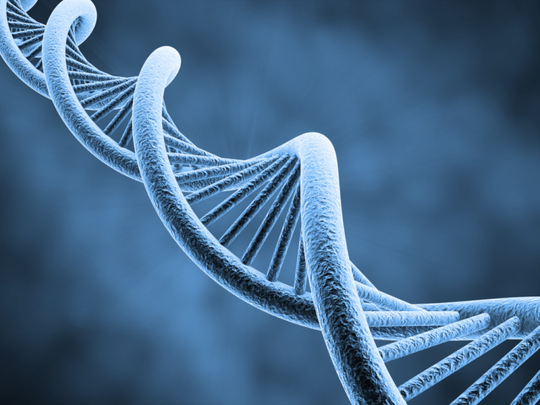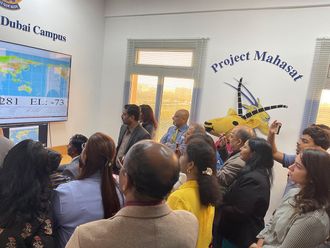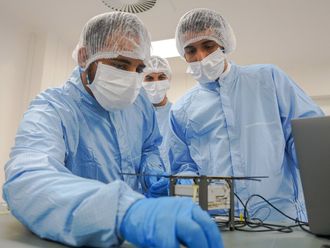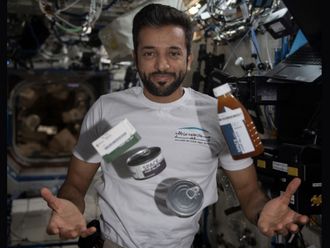
Wshington: Delegates at a crucial scientific summit this week are expected to debate a ban on the use of the controversial technique of gene editing. Hundreds of the world’s leading biologists will gather in Washington to discuss the procedure, in which genes are removed from or added to human embryos.
Some researchers say gene editing of humans could have unpredictable effects on future generations and is ethically unacceptable. They also warn that the technology could be used to create lineages of “enhanced” humans and want all work in the area halted until its implications are fully assessed.
As a result they are expected to call for a moratorium on future research at the summit, which is to be attended mostly by researchers from the UK, US and China, where gene editing is most widely practised. But other scientists say a moratorium would be harmful. Gene editing has the potential to rid the planet of some fatal illnesses, they argue.
Academics in favour of continuing the current research programme point to the work of Chinese scientists, who earlier this year reported they had used a gene editing procedure called Crispr to modify an aberrant gene that causes beta thalassaemia, an inherited life-threatening blood disorder.
This was done in IVF embryos obtained from fertility clinics. The embryos were not implanted into women once the modifications were made, however.
Other scientists say versions of genes that predispose humans to Alzheimer’s disease or make them susceptible to HIV and other infections could be removed from embryos and so free future generations from these conditions.
The technology also offers ways to improve stem cell research, boost the effectiveness of IVF techniques and reduce human miscarriage rates. For good measure, techniques like Crispr will allow researchers to rewrite the genomes of plants and animals and transform agricultural science.
“There is a great deal to be gained through the use of gene editing, but obviously we have be careful how we proceed,” said one conference organisers, Professor Robin Lovell-Badge, of the Francis Crick Institute, in London. “The point of this meeting is to determine just how quickly we should move.”
Gene editing techniques use pieces of genetic material called RNA and work like the find-and-replace function on a word processor. First they locate a gene to be edited, then they make the necessary change to it, either by deleting or repairing it. The technology has made the process of genetic modification a dramatically simple one to operate and is now transforming medicine.
One example is provided by the work of George Church, at Harvard University, who used Crispr to alter, simultaneously, 62 genes in a pig cell and so remove all the retroviruses embedded in the pig’s DNA. The use of pig organs for transplants into men and women has been bedevilled by retroviruses which can infect humans. However, Church’s work suggests it is now possible to eradicate them and so open up the possibility of xenotransplants — animal organ transplants — for humans.
Other scientists envisage using gene editing technology to remove harmful inherited conditions, such as Tay-Sachs or Huntington’s disease, from future generations. However, others warn of the dangers inherent in the process and question the ethics involved.
Francis Collins, director of the US National Institutes of Health, argues that individuals participating in research must be able to give fully informed consent. “But the individuals whose lives are potentially affected by germline manipulation could extend many generations into the future,” he says. “They can’t give consent to having their genomes altered.”
This point is backed by scientists, led by the head of the biotechnology company Sangamo BioSciences, Edward Lanphier, in a paper in Nature recently.
“Permitting even unambiguously therapeutic interventions could start us down a pathway towards non-therapeutic enhancement,” he said. In other words, removing genes for fatal inherited diseases from future generations will result in humanity sliding swiftly down a slippery slope to the creation of generations of “improved” or “enhanced” humans with bigger muscle masses or higher IQs. Some could even be created to see in infra-red or ultra-violet light, it is argued.
Defenders of gene editing say this connection is simply not supported by the evidence. “You have to ask when people use the slippery slope argument is just how slippery is the slope, and just how bad will be it be when you reach the bottom,” said bioethicist Sarah Chan, at Edinburgh University.
“It is not clear the slope outlined by those calling for a moratorium is really that slippery or that things would be that bad if and when we reached the bottom.”












